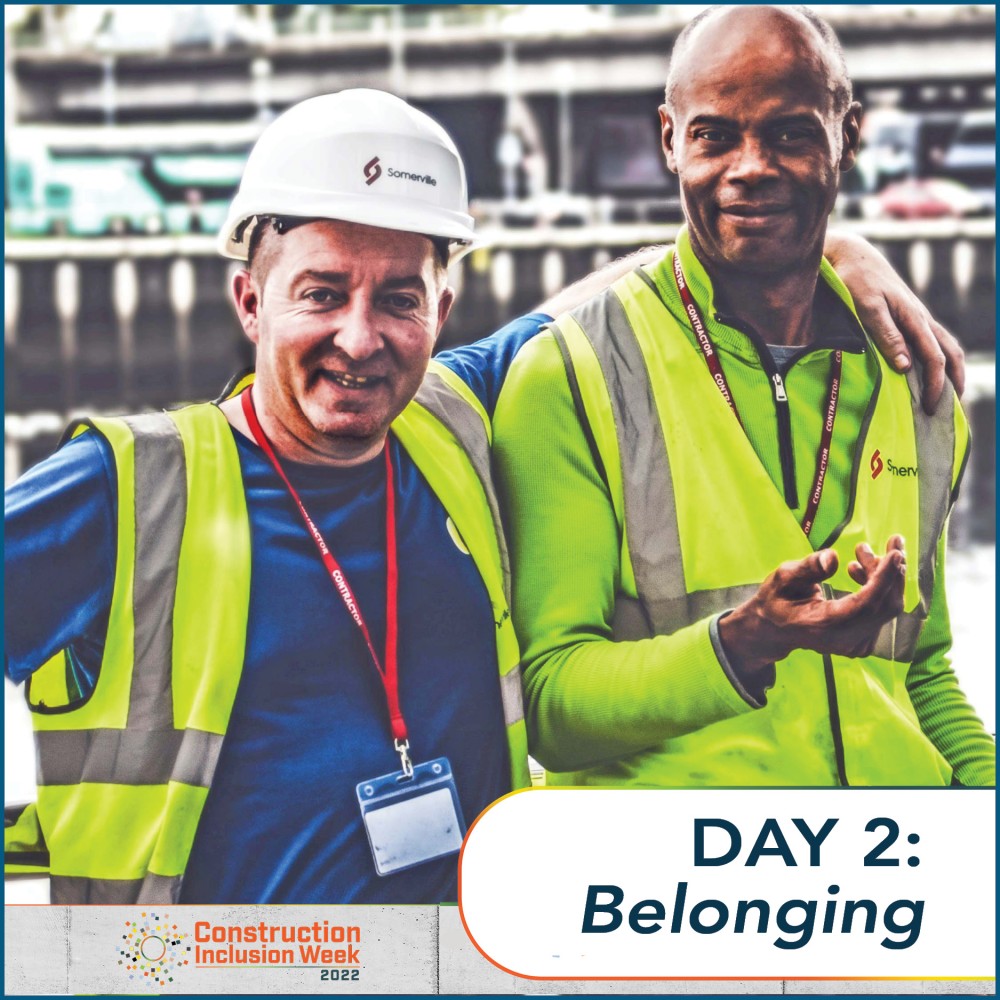
INCLUSION - WHAT IS IT?
What does inclusion mean? Inclusion is a feeling of belonging, and an inclusive workplace exists when employees are valued, respected, accepted and encouraged to fully participate in their organization. People who feel included perform better and have fewer accidents, creating a more productive and safer workplace for everybody. This could be called a Culture of CARE.
How does Culture of CARE create an inclusive workplace? Culture of CARE simply lays the foundation for what is and is not acceptable behavior on a jobsite. It is up to each of us to acknowledge that everyone on site adds value, deserves respect and has an opportunity to contribute to the work. Creating a Culture of CARE helps everyone feel more comfortable and confident speaking up, sharing new ideas, and working to stop harassment, hazing, bullying, threats and intimidation.
What are ways you can contribute to a Culture of CARE? Welcome ideas that are different from your own. Treat people how THEY wish to be treated rather than how YOU wish to be treated. Get to know your coworkers; ask them about their family, values or hobbies. Understand the diversity your personally bring to the organization. If you routinely go to the same people for ideas, you aren't necessarily being open to the diversity of thought others provide and may be unintentionally excluxing some of your coworkers.
MICROAGGRESSIONS - PAYING ATTENTION
Microaggressions are every day slights, insults and indignities usually directed to marginalized groups sometimes by well-intentioned people. Microaggressions clearly expose ingrained prejudices: racism, sexism, ageism, and/or classism embedded into our every day societal structures.
There are three forms of microaggressions:
1.) Micro-Assault: conscious and deliberate actions meant to demean a person through deliberate and overt racial discrimination, which can be verbal or non-verbal. Example - preventing one's son/daughter from dating a person of color.
2.) Micro-Insults: behaviors or actions that demean a person's racial heritage or identity by signaling that the person of color is considered inferior or less intelligent when a white counterpart. Example - asking a co-worker of color how they got their job, implying affirmative action or a quota system.
3.) Micro Invalidations: actions that negate or invalidate the feelings and experiences of people of color. This is often unconscious. Example - a white people asking a Latinx person where they were born, sending the message that they are perpetual foreigners.
Why building belonging? Belonging has been a basic human need from our tribal histories to modern-day. As humans, we all have the need to be an accepted member of a group. It's easier to create a sense of belonging when everyone is similar. Yet, as we create and benefit from diversity in our team, we must consciously broaden our perspectives to ensure everyone is part of the group.
CHALLENGING OUR ASSUMPTIONS
Our brains are wired to make assumptions, which can sometimes be off base. We think it's an honest mistake; science calls its a blind spot. Our unconscious mind makes 90% of our decisions without us even knowing it. Our brains are overloaded with 11 million pieces of information every second, yet we can only process about 40 of them. So, we are wired to make cognitive shortcuts using our past experiences to make assumptions.
Our unconscious mind can put us on autopilot. Determined where we sit, who we lunch with, who we turn to for advice and who we choose to offer a helping hand. Living our lives with blind spots can put us in a tunnel. Same point of view. Same decisions. Same outcomes. We can find ourselves trapped in a world of snap judgements and misconceptions. We've all been on both the giving and receiving end of blind spots.
Think about it. Who's talented? Who's able? Who can I trust? Who belongs? We've all been there. Blind spots are part of the human condition. Our choices have consequences, for us, and the people we interact with. By accepting that blind spots exist, we can stop. Imagine what possibilities exist if we could do it all over again? We all have blind spots. Once you accept that you have them, you can choose to do something about it.
Different perspectives, inclusive relationships, diverse networks, better outcomes, seeing people for who they really are --- people, like you, with unlimited potential.
FIVE HELPFUL LINKS:
1.) VIDEO: A Lesson in Helping Everyone Feel a Sense of Belonging featuring Miss Marianna
2.) How Any Business Can Care a Culture of Belonging in the Workplace via Forbes
3.) 20 Activities to Promote Diversity and Inclusion in the Workplace via Vantage Circle
4.) Culture of CARE
5.) How to Fight Back Against Male Bias, According to a Woman in Construction via Career Contessa
Learn more and find additional resources at www.constructioninclusionweek.com.